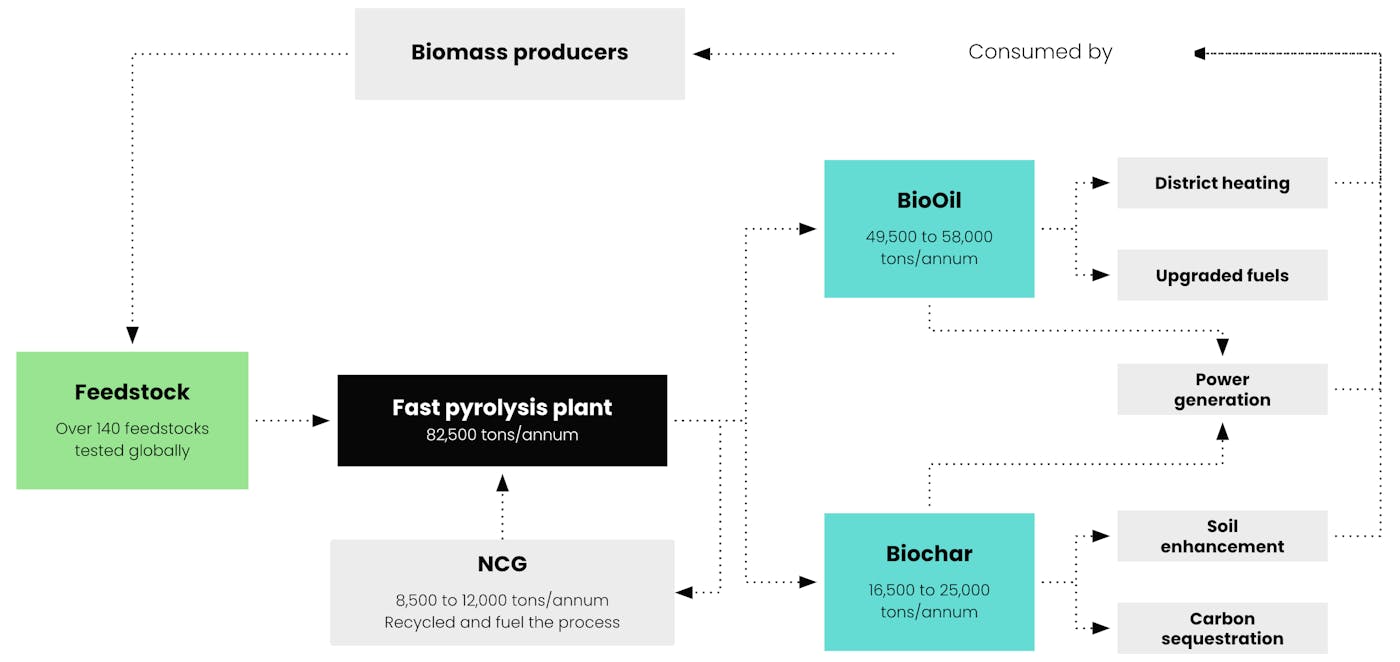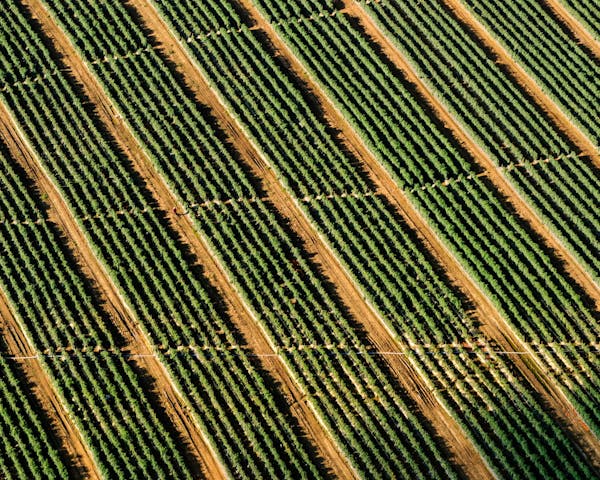Circular economy
Reinvesting resources and benefits through a cyclical process

The fast pyrolysis process has an added benefit of promoting regenerative economies. Biomass producers benefit from the clean energy and soil enhancement provided by BioOil and BioChar respectively. Their waste can then in turn fuel the production of new BioOil and BioChar, providing economic benefits for local producers and closing the loop.

Circular economies are key to a more sustainable future. By keeping materials in use for as long as possible and making use of "waste" products (e.g., husks, bagasse, etc.), the process reduces resource waste and maximizes resource efficiency. This economic model has a variety of social and environmental benefits in addition to cost savings.
Circular economy strategies that reduce our use of resources can cut global greenhouse gas emissions by 39% (22.8 billion tons) and play a crucial role in averting the dangerous impacts of climate change.

Benefits
Circular economic practices foster local resilience, enhance energy independence, contribute to global climate mitigation efforts, and create continuous value at the local, regional, and national levels.
Use of waste materials reduces dependence on finite resources such as oil and gas and harmful practices such as fracking and mining
BioChar can replace chemical fertilizers and improve soil fertility
Emissions reduction through change in consumption patterns of fossil fuels
Benefits of clean energy (water, air, sourcing) are seen locally as energy is produced through fast pyrolysis rather than oil/gas, etc.
Investment in local businesses creates economic opportunities and jobs for the community
Sourcing residues from local farms and producers invests directly into local businesses, who can then purchase BioChar and BioOil for their own use
Profits and revenue from resource sales and energy are enjoyed domestically as opposed to purchasing fuels from foreign trade partners
Studies show that, to return to safe limits of consumption, we need to reduce global material extraction and consumption by a third. Transitioning to a circular economy will be instrumental to achieving this.

Our impact

CO₂ impact

Why now?
